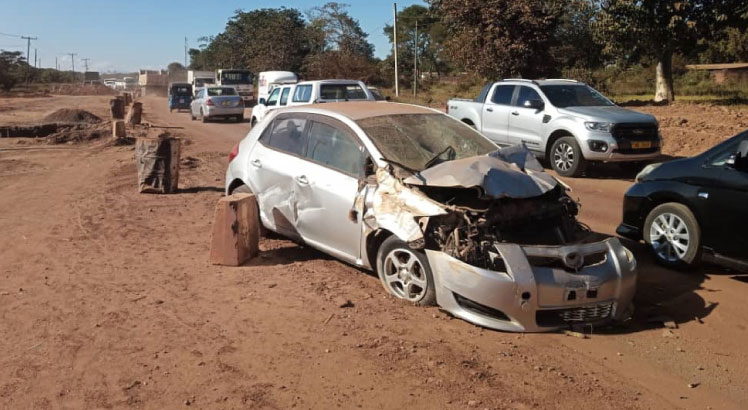Council moves to act on unregistered contractor
National Construction Industry Council (NCIC) says it will enforce compliance to registration and safety measures for the contractor working on the M1 section between Crossroads and Kanengo in Lilongwe.
NCIC chief executive officer Engineer Gerald Khonje said this on Sunday in response to The Nation enquiry on concerns that the contractor, hired by the Chinese Government, was working on the public road project without both registration and local partnership contrary to legal requirements.
The Chinese Embassy in Malawi has not responded to our questionnaire for the past two weeks, but the contractor confirmed working without due registration and partnership with a local firm. The contractor claimed the rules may not apply as the project was a grant.
But Khonje dismissed the contractor’s position, stating that “the law does not discriminate, therefore, the contractor will be subjected to the full weight of it”.
The NCIC Act makes it mandatory for all construction firms to be registered with the Council. The NCIC Act (2014) also stipulates that a foreign construction firm wishing to provide construction services in Malawi shall be required to provide those services in association with a member practice or local firm.

Reads the law in part: “A member practice, whether in a joint venture or a subcontract arrangement shall be responsible for a minimum of 30 percent of the works by volume and value.”
Khonje said the contractor submitted an application for registration, but it was yet to be finalised.
He said among the aspects yet to be complied with is the requirement to partner with a local player.
Since the project started in December 2021, the contractor, Shandong Group Company Limited from China, has not registered with NCIC nor partnered with a local firm as required by law.
However, a representative of the contractor, who identified himself as He Liret and spoke through an interpreter, said they have employed some locals.
Commenting on the matter in a separate interview, former Roads Authority chairperson Joe Ching’ani said despite this being a grant, the application of the law is the same.
Minister of Transport and Public Works Jacob Hara said he personally struggled to get some finer details of the project, including the cost.
“We do not know the cost. The Chinese have not shared the contract despite us asking for it several times,” the minister said.
Construction Industry Transparency Initiative country manager Lyford Gideon also expressed worry about the lack of information on the project, saying this is a mockery of the country’s set standards which promote transparency and accountability in public construction.
But Minister of Finance and Economic Affairs Sosten Gwengwe said the project was being implemented with the Chinese contractor in line with an agreement between Malawi and China.
On the cost, he said it was a grant of about $60 million (over K60 billion) for the project estimated to run for 36 months.
However, this sharply contradicts with the records as shared by Roads Authority which put the cost of the 9.5-kilometre dual carriageway section at K22.5 billion.
China has provided Malawi with a grant to expand this M1 section into four lanes.
The project also lacks signage such as the contractor’s name, the client, project duration, name of local partner and consultant. Besides, road safety signage is also either missing or missing.





